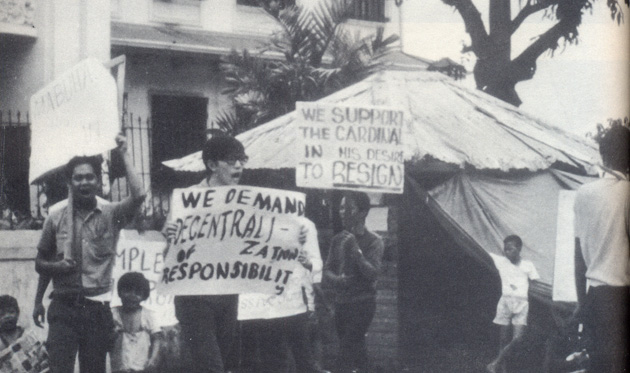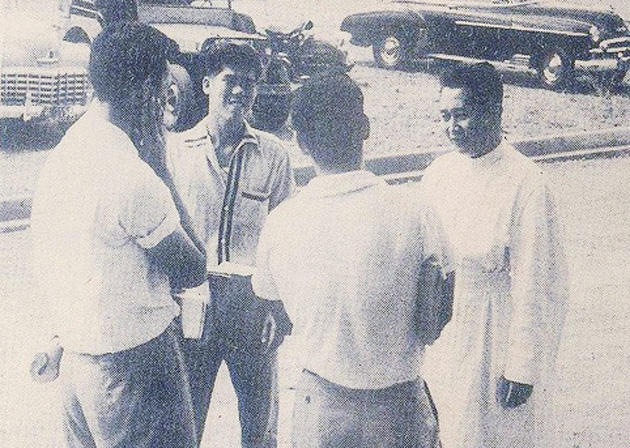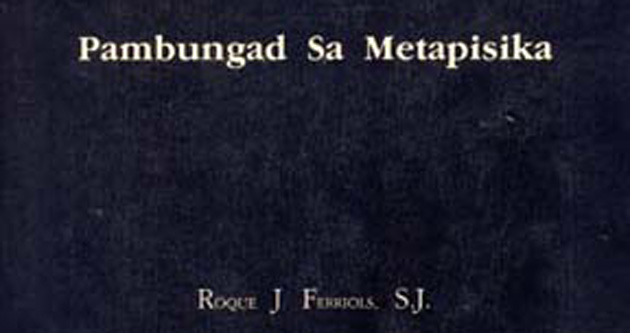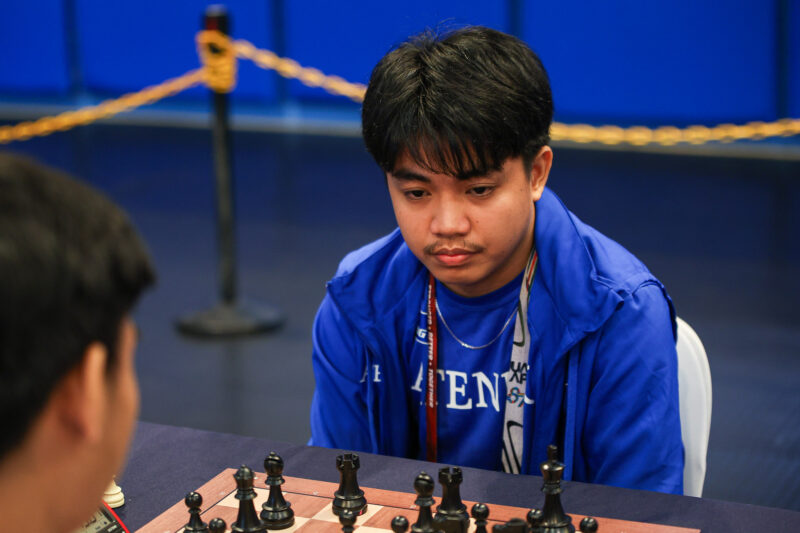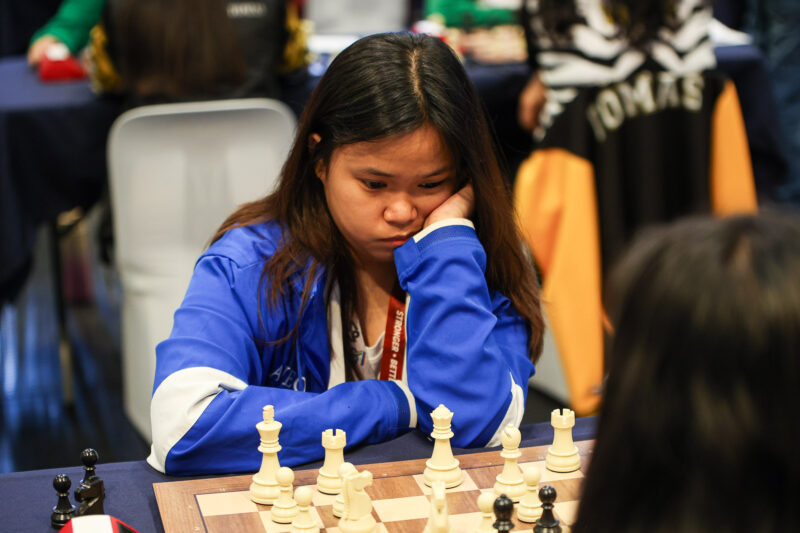The following are some of the significant events or changes that took place in the Ateneo during the advent of Filipinization—a movement that would forever change the academic character of the university.
The “Down from the Hill” manifesto
“Down from the Hill,” the 1968 manifesto in The GUIDON that, as a piece of writing, would have an unparalleled effect on all subsequent Ateneo history, began by declaring: “Filipinization is relevance.” This landmark piece paved the way for the entry into wider discourse of a sentiment that first emerged in the minds of a progressive few. Today, it is impossible to imagine an Ateneo that does not see itself as rooted in the Filipino condition.
First Filipino President of the Ateneo
In 1969, Fr. Pacifico Ortiz, SJ became the first Filipino president of the Ateneo de Manila University. It was an important and momentous occasion for everyone who believed that a truly Filipino university leadership is indispensable for the success of the whole Filipinization movement in the Ateneo.
Philosophy in Filipino
Fr. Roque Ferriols, SJ, co-founder of the Philosophy Department along with Fr. Joseph Roche, SJ and Ramon Reyes, first taught philosophy in Filipino in the Ateneo in 1969. Some administrators were so opposed to the idea that Ferriols’ classes were scheduled during the oddest hours. Currently, around half of all philosophy classes in the Ateneo are taught in Filipino.
Protests against American faculty
Filipinization also led to a student body hostile to anything seen as neocolonial. The faculty was not an exemption. In 1970, strong opposition met the appointment of American Fr. Joseph Galdon, SJ as the chair of the English Department. There was also an occasion of book-burning—students condemned the textbook Invention by then English professor Fr. Joseph Landy, SJ as being colonial in orientation.
Establishment of the Filipino Department
The Filipino Department was first established in 1975 under the leadership of National Artist for Theater and Literature Rolando Tinio, also a pioneering theatre director. The department has, since that time, been at the forefront of the promotion and the academic study of the national language.

